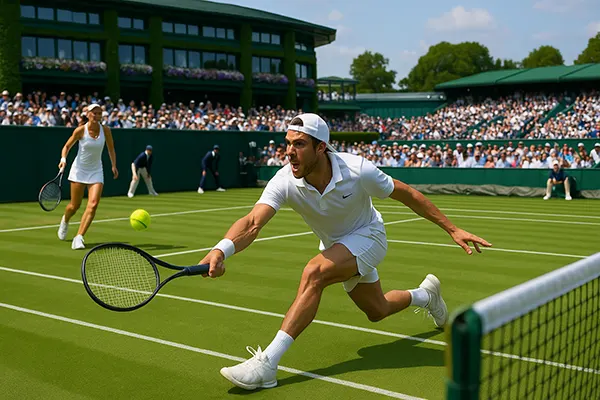The global sports industry is undergoing an environmental revolution. From energy-efficient stadiums to carbon-neutral racing, sustainability has become a driving force that influences not only competition but also the betting landscape. Bookmakers and bettors are adapting to a world where ecological initiatives change the dynamics of play, sponsorship, and even audience engagement.
Green Technology and Regulation in Modern Sports
Over the past decade, major sports organisations have integrated environmental goals into their strategies. FIFA and UEFA now promote eco-certified venues that rely on renewable energy, efficient waste management, and reduced travel emissions. These changes affect match schedules, player conditions, and even the probability of goals or injuries — all vital parameters for predictive betting models.
In motorsport, the introduction of hybrid and fully electric categories, including Formula E and Extreme E, represents a fundamental shift. Analytical materials on https://myautomotivezone.com/ illustrate how evolving racing disciplines reflect broader technological and environmental trends within the automotive industry. Bettors must evaluate variables like temperature impact on electric batteries or how regenerative braking affects performance over long distances.
Furthermore, betting algorithms increasingly incorporate sustainability-related metrics. Weather stability, energy-saving strategies, and surface adaptations are becoming essential data points. The line between ecological technology and betting analytics continues to blur, as sports evolve into laboratories for green innovation.
Motorsport: Electric Evolution and Betting Implications
Electric racing has transformed how bookmakers assess odds. Factors such as battery degradation, charging strategy, and energy management replace traditional engine parameters. For example, in Formula E, drivers who manage energy more efficiently often outperform those with higher peak speeds, making stamina and tactical planning crucial for bettors to analyse.
Extreme E, which competes in fragile ecosystems like the Arctic or the Amazon, introduces further unpredictability. Weather disruptions, limited track data, and environmental penalties add new risk layers to betting decisions. Punters focusing on sustainability-related variables may find more accurate predictions than those relying on conventional speed statistics.
As governing bodies impose stricter environmental rules, teams invest in cleaner technologies that influence racing outcomes. Bettors now observe trends such as reduced pit-stop frequency and consistent lap times due to improved energy recovery — a subtle yet measurable impact of ecological regulation on wagering dynamics.

Football, Tennis and the Social Dimension of Sustainability
In team sports, environmental responsibility increasingly shapes sponsorship and public image. Clubs like Real Madrid and Liverpool have introduced carbon-neutral operations and recycled-material kits, aligning with global sustainability movements. These choices affect partnerships: eco-focused brands replace traditional sponsors from high-pollution sectors, indirectly influencing betting interest and fan loyalty.
Tennis tournaments such as Wimbledon and the Australian Open have also adopted green initiatives — solar panels, water recycling, and travel reduction programmes. Organisers reschedule matches to cooler hours, altering player stamina and game outcomes. For bettors, environmental conditions now form a critical variable when assessing live-betting opportunities.
Audience perception plays a vital role. Younger fans, more aware of climate change, support environmentally responsible teams and events. Consequently, bookmakers observe shifting betting behaviour: players and clubs associated with sustainability gain trust and higher engagement rates among eco-conscious bettors.
How Green Sports Change Betting Behaviour
The move toward sustainability reshapes the psychology of betting. Transparency, ethics, and environmental responsibility become factors influencing user preference. Bettors increasingly choose companies that support carbon-neutral operations or donate portions of profit to ecological causes.
For bookmakers, adapting to this trend means integrating sustainability into marketing and risk management. Many operators publish environmental impact reports and introduce “green odds” for competitions with sustainable credentials. This reinforces trust and reflects the social shift within the gambling community.
Ultimately, ecological transformation is not a peripheral trend but a structural evolution. As sports embrace greener technologies, betting markets follow suit, becoming more data-driven, ethical, and reflective of modern environmental awareness. The future of wagering depends not only on athletic performance but also on how responsibly the industry treats the planet.




